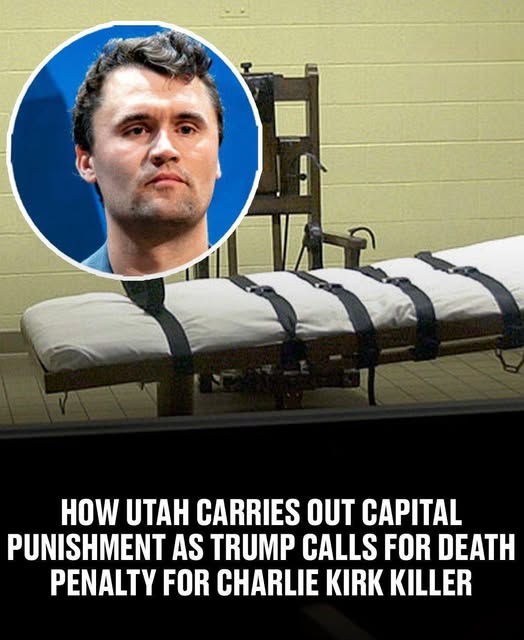Utah Shooting Case and the Death Penalty Debate
When tragedy shakes a nation, it always leaves behind two urgent questions: what is justice, and what is mercy? The assassination of conservative activist Charlie Kirk has not only stunned Americans but also reopened one of the hardest conversations in our society — the use of the death penalty.
The Arrest and Calls for Justice
Authorities confirmed the arrest of 22-year-old Tyler Robinson in connection with the shooting at Utah Valley University. Investigators tied him to the rifle, engraved ammunition, and digital communications that suggest planning.
Almost immediately, political leaders spoke out. Former President Donald Trump declared his hope that Robinson would face the death penalty if convicted. Utah’s Governor Spencer Cox reminded the public that the state still carries capital punishment — including, uniquely, the firing squad.
These reactions reveal the intensity of grief and anger. Yet grief, when mixed with politics, can quickly turn into vengeance.
Utah’s Unique Laws
Utah is one of the few states where prosecutors can pursue execution by lethal injection or, under certain conditions, by firing squad. While some see this as justice carried out with clarity, others view it as a brutal remnant of the past.
The law allows death sentences for aggravated murder — cases where there was premeditation, public risk, or political targeting. By those definitions, prosecutors may well seek the harshest penalty available.
But history shows that capital cases are long, slow, and often uncertain. Appeals stretch over decades. Utah has not executed anyone since 2010. Even when sentences are pronounced, many are never carried out.
A Higher Reflection
The Qur’an says, “Whoever saves one life, it is as if he has saved all mankind” (5:32). The opposite also holds — the taking of a single life without right shakes the world. Yet God also calls His servants to uphold boundaries with wisdom, not with rage.
Sufi masters like Ibn ʿAta’illah remind us: “Do not let the hatred of one who wrongs you cause you to step outside the limits of God.” Justice without discipline becomes vengeance; mercy without firmness becomes negligence. The heart’s task is to hold both.
Beyond Punishment
If Robinson is guilty, the law will take its course. But for a nation in grief, the deeper question remains: will we only respond with punishment, or will we also search our hearts for the roots of such violence — the online cultures, the political divisions, the human despair that can turn a young man into a killer?
Utah’s death penalty debate is not just about one man’s fate. It is about whether a society can confront evil without becoming consumed by it.
Closing Reflection
Charlie Kirk’s death has shaken many, especially his family. His wife Erika shared words from the Psalms: “God is our refuge and strength, a very present help in trouble.” These words remind us that even in violence, the heart can turn toward God as a shield.
The true measure of justice will not be whether the state chooses a needle or a firing squad. It will be whether this nation chooses to uphold life, dignity, and accountability without losing its soul.
May God guide us to justice with mercy, firmness without cruelty, and remembrance of the Day when all accounts are settled by Him alone.


